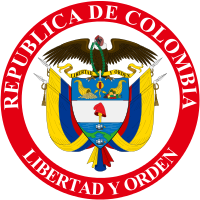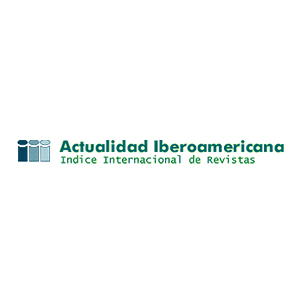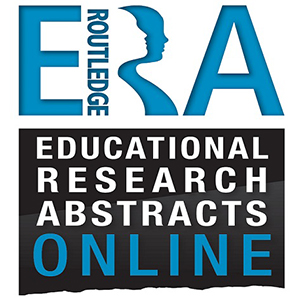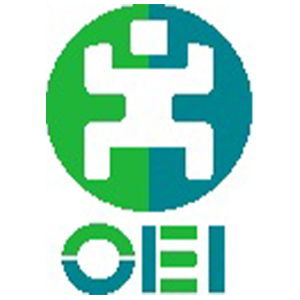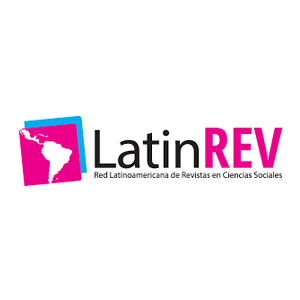LA EDUCACIÓN EN ENERGÍAS RENOVABLES NO CONVENCIONALES EN LA FORMACIÓN DE INGENIEROS ELECTRÓNICOS DE LA UNIVERSIDAD DISTRITAL FRANCISCO JOSÉ DE CALDAS
El agotamiento de los recursos energéticos de origen fósil y sus efectos adversos sobre el medio ambiente se han convertido en un problema de carácter global, la crisis energética golpea con mayor impacto a países subdesarrollados, mala calidad de vida está asociada con difícil acceso a energía de calidad y a precios razonables. Las energías renovables no convencionales y sus tecnologías asociadas se desarrollan rápidamente al tiempo que sus costos bajan, lo que hace imperativo se implementen programas de formación en este campo. En este documento se presentan algunos fundamentos conceptuales, metodológicos y resultados parciales de la investigación del proyecto de tesis doctoral en Educación en Energías Renovables No Convencionales para la Formación de Ingenieros Electrónicos de la Universidad Distrital Francisco José de Caldas, en el énfasis de educación en ciencias del Doctorado Interinstitucional en Educación – DIE UD.
Academia Militar de los Estados Unidos, (2010). https://www.westpoint.edu/about/history-ofwest-point
Academia Nacional de Ingeniería [NAE], (2004), (2005). https://www.nae.edu/Reports.aspx?source=19_99
Alfred Watkins, M. E., (2008). Science, Technology, and Innovation. (T. W. Bank, Ed.). Washington DC.
Ballesteros, V., Gallego P. y Salamanca J., (2018). La educación en energías renovables como alternativa de promoción del compromiso público ascendente entre los indígenas Wayúu del corregimiento Wimpechi. Revista Tecné, Episteme y Didaxis.
Bruhn, K., Lorensson, S., & Svensson, J., (2009). Development of Learning Material to wind power courses.
Cao, X., Kleit, A., & Liu, C., (2016). Why invest in wind energy? Career incentives and chinese renewable energy politics. Energy Policy.
Cohen, L. y Manion, L., (1989), Métodos de investigación educativa. Madrid: Muralla.
Consejo Nacional de Investigación, (1999). Examination of Assessment Practices for Engineering Design Projects in Secondary Education.
Consejo Nacional de Investigación, (2002). Tracking the Processes of Change in US Undergraduate Education in Science, Mathematics, Engineering, and Technology.
Continental. (2006). In search of global engineering excellence: Educating the next generation of engineers for the global workplace. Hanover, Germany.
Evers, F. T., Rush, J. C., & Berdrow, I. (Eds.). (1998). The bases of competence: Skills for lifelong learning and employability. San Francisco: Jossey-Bass.
Gabriele, G. (2005). “Advancing Engineering Education in a Flattened World,” Journal of Engineering Education.
Greene, J. C., & Caracelli, V., (2003). Making paradigmatic sense of Mixed Methods practice. En A. Tashakkori & C. Teddlie (Eds.), Handbook Mixed Methods in social and behavioral research. Thousand Oaks, CA: Sage.
Haghighi, K., (2005). “Quiet No Longer: Birth of a New Discipline,” Journal of Engineering Education.
Harvey, T. E. (1995). An education 21 programme: Orienting environmental education towards sustainable development and capacity building. The Environmentalist, 15, 202–210.
Hasnain, S. M., Elani, U. A., Al-Awaji, S. H., Aba-Oud, H. A., & Smiai, M. S. (1995). Prospects and proposals for solar energy education programmes. Applied Energy.
Hasnain, S., Alawaji, (1998). Solar Energy Education a Viable Pathway for Sustainable development.
IPCC (Intergovernmental Panel on Climate Change) (2007) Climate Change 2007: Synthesis Report: Summary for Policymakers Change, Geneva
Johansen, K. and Emborg, J., (2018). Wind farm acceptance for sale? Evidence from the Danish wind farm co-ownership scheme. Energy Policy.
Johnson y Onwuegbuzie. (2004). Mixed Methods Research: A Research Paradigm Whose Time Has Come. DOI:10.3102/0013189X033007014
Johnson y Turner. (2003). Toward a Definition of Mixed Methods Research
Jonassen, D., Strobel, J., & Lee, C. B. (2006). Everyday problem solving in engineering: Lessons for engineering educators. Journal of Engineering Education.
Journal of Engineering Education. (2010). Home page. Retrieved September, 2010, from http://www.asee.org/papers-and-publications/publications/jee
Kandpal, Tara C, & Broman, L., (2016). Renewable energy education for the future.
Kobayakawa, T., & Kandpal, T. C., (2014). A techno-economic optimization of decentralized renewable energy systems: A case study of rural India. Energy for Sustainable Development.
Lane, J. F., Floress, K., & Rickert, M., (2014). Development of school energy policy and energy education plans: A comparative case study in three wisconsin school communities. Energy Policy.
Latorre, A.; Rincón, D. Arnal, J., (1996). Bases metodológicas de la investigación educativa. Barcelona.
Lohmann, J. R., (2003). Mission, measures, and Manuscript Central™. Journal of Engineering Education.
Lovelock, J., (2007). La venganza de la tierra. La teoría Gaia y el futuro de la humanidad. Ed. Planeta. Barcelona, España.
Lund, C. P., & Jennings, P. J. (2001). The potential, practice and challenges of tertiary renewable energy education on the World Wide Web. Renewable Energy.
Lund, C. P., & Jennings, P. J., (2000). The potential, practice and challenges of Tertiary renewable energy education on the World Wide Web. Renewable Energy.
Martinot, E. (2005). Renewables 2005 global status report (REN 21). Washington, DC: Worldwatch Institute.
National Science Foundation, NSF. (1992). Employment Status of Recent Science and Engineering Graduates Varies by Level and Field of Degree.
Pedro, J., Pedro, C. J., (2010). Redalyc. Modelo teórico para la Educación Energética.
Pushpendra J., Lungu, E. y Mogotsi, Buti, 2002. Renewable energy education in Botswana: Needs, status and proposed training programs. Renewable Energy. Vol. 25. DOI 10.1016/S0960-1481(01)00004-0
Salamanca Céspedes, J. E. (2019). La educación en energías renovables no convencionales en la formación de ingenieros electrónicos: Non-conventional renewable energy education in the training of electronic engineers. Noria Investigación Educativa, 2(4), 11–18. https://doi.org/10.14483/25905791.16331
Salamanca-Avila, S. (2017). Propuesta de diseño de un sistema de energía solar fotovoltaica. Caso de aplicación en la ciudad de Bogotá. Revista Científica, 30(3), 263–277. https://doi.org/10.14483/23448350.12213
Sauvé, L. (2014). Environmental education and eco-citizenship. Key dimensions of a pedagogical-political Project.
Stevens, R., O’Connor, K., Garrison, L., Jocuns, A., & Amos, D. (2014). Becoming an engineer: Toward a three dimensional view of engineering learning. Journal of Engineering Education.
Taleghani, M., Ansari, H. R., & Jennings, P. (2010). Renewable energy education for architects: Lessons from developed and developing countries. International Journal of Sustainable Energy.
Tang, T. (2016). Explaining technological change of wind power in China and the United States: Roles of energy policies, technological learning, and collaboration. Syracuse University.
Thomas, C. D., Hoegh-Guldberg, O., Hughes, L., McIntyre, S., Lindenmayer, D. B., Parmesan, C., Possingham, H. P. (2008). Assisted Colonization and Rapid Climate Change. DOI: 10.1126/science.1157897
Vilches, A., Gil Pérez, D., Toscano, J.C. y Macías, O. (2014). «La transición energética. Una Nueva Cultura de la Energía» [artículo en línea]. OEI. ISBN 978-84-7666-213-7. http://www.oei.es/decada/accion.php?accion=023
Young, J. (2000). Education at the commission on sustainable development: The perception of the international community. The Environmentalist, 20, 169–178.
Ziadat Anf H., 2009. Major factors contributing to environmental awareness among people in a third world country/Jordan. Environ Dev Sustain (2010) 135–145. DOI 10.1007/s10668009-9185-4
Young, J. (2000). Education at the commission on sustainable development: The perception of the international community. The Environmentalist, 20, 169–178.
APA
ACM
ACS
ABNT
Chicago
Harvard
IEEE
MLA
Turabian
Vancouver
Descargar cita
Visitas
Descargas
Licencia
Derechos de autor 2021 Bio-grafía

Esta obra está bajo una licencia internacional Creative Commons Atribución-NoComercial 4.0.
Todo el trabajo debe ser original e inédito. La presentación de un artículo para publicación implica que el autor ha dado su consentimiento para que el artículo se reproduzca en cualquier momento y en cualquier forma que la revista Bio-grafía considere apropiada. Los artículos son responsabilidad exclusiva de los autores y no necesariamente representan la opinión de la revista, ni de su editor. La recepción de un artículo no implicará ningún compromiso de la revista Bio-grafía para su publicación. Sin embargo, de ser aceptado los autores cederán sus derechos patrimoniales a la Universidad Pedagógica Nacional para los fines pertinentes de reproducción, edición, distribución, exhibición y comunicación en Colombia y fuera de este país por medios impresos, electrónicos, CD ROM, Internet o cualquier otro medio conocido o por conocer. Los asuntos legales que puedan surgir luego de la publicación de los materiales en la revista son responsabilidad total de los autores. Cualquier artículo de esta revista se puede usar y citar siempre que se haga referencia a él correctamente.

